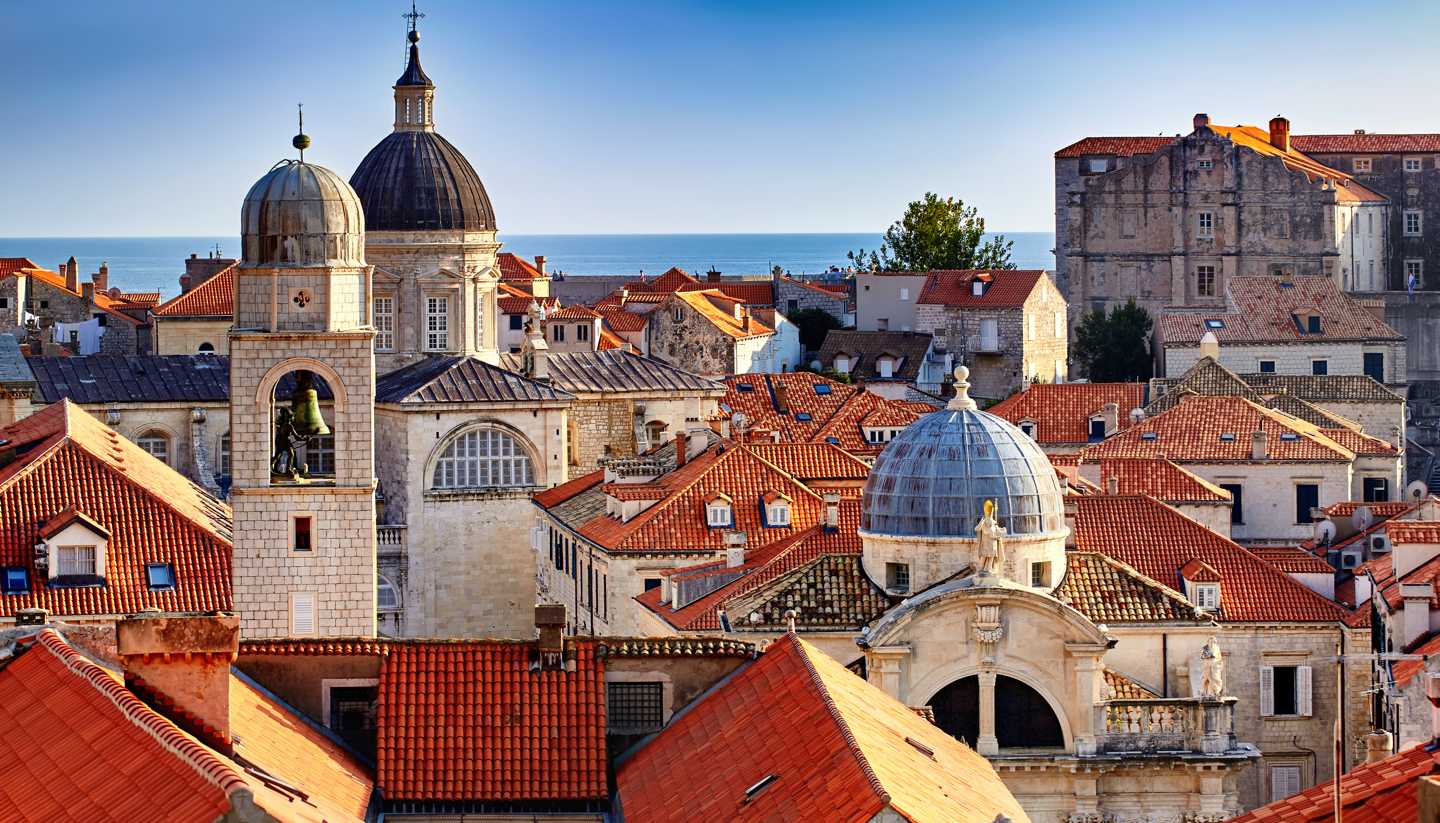Dubrovnik History
Historically a key Mediterranean trading port, Dubrovnik has transformed into a tourist hotspot.
Dubrovnik’s first settlers were refugees from the colony of Epidaurus, who arrived in the seventh century. For centuries the city, known until 1808 as the Republic of Ragusa, was a free city-state that stood as one of the Adriatic’s most important cities.
From the ninth century, Dubrovnik began to take shape as a well prepared and fortified municipality, resisting a 15-month long siege from the Saracen. It was dominated by the influence of the Byzantine Empire from the seventh century until the 12th, when more autonomous aspirations started to grow within its people. At the beginning of the 13th century though, Dubrovnik fell under the control of its primary rival, the Most Serene Republic of Venice, until breaking free of its control in 1358. Prosperity followed, as Dubrovnik became the chief rival of the Venetian Empire, before suffering a double blow. An earthquake in 1667 devastated the city. Then the opening of new trade routes to the east sent the city into decline, a period which ended with Napoleon’s conquest in 1806. His reign here was short lived though, with Dubrovnik becoming part of the Habsburg Empire from 1815 until 1918. Dubrovnik began to lure tourists, with literary giants such as George Bernard Shaw and Agatha Christie among those singing its praises.
The city’s sturdy walls have never been breached, but they did endure a battering between 1991-92 when Serb and Montenegrin paramilitaries laid siege to the city in the Croatian War of Independence. A legacy of the repair work was a swathe of bright orange roof tiles (the lighter tiles came from the original quarry which closed before 1991) which distinguishes the Old Town. Today, the development of upmarket hotels and restaurants has ensured cruise and low-cost airline passengers are arriving in droves.


